Vocabulary Building Writing Worksheets for 3-Year-Olds
5 filtered results
-
From - To
Introduce your little one to the joy of words with our "Vocabulary Building Writing Worksheets for 3-Year-Olds." Designed with early learners in mind, our engaging activities promote language development through fun, visually appealing exercises. From recognizing familiar objects to learning new words, these worksheets will ignite your child's love for learning while enhancing their vocabulary and writing skills. Suitable for preschoolers, these easy-to-follow worksheets offer a blend of tracing, coloring, and simple word association tasks. Watch as your child explores the world of words, building a solid foundation for their language journey. Start their learning adventure today!
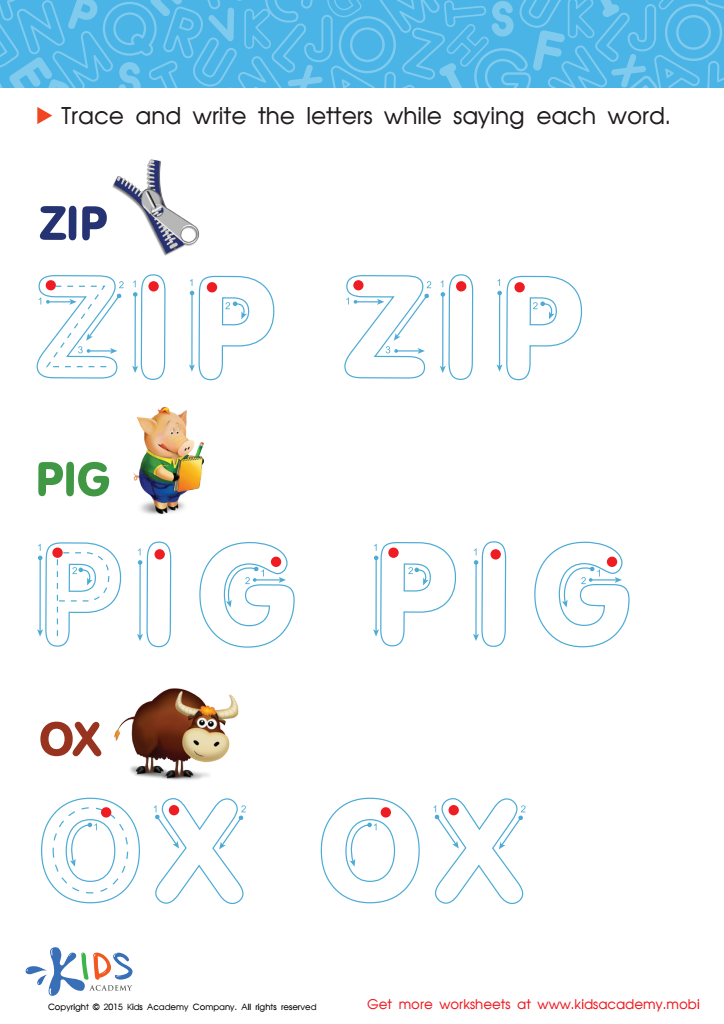

A Zip, a Pig and an Ox Spelling Worksheet
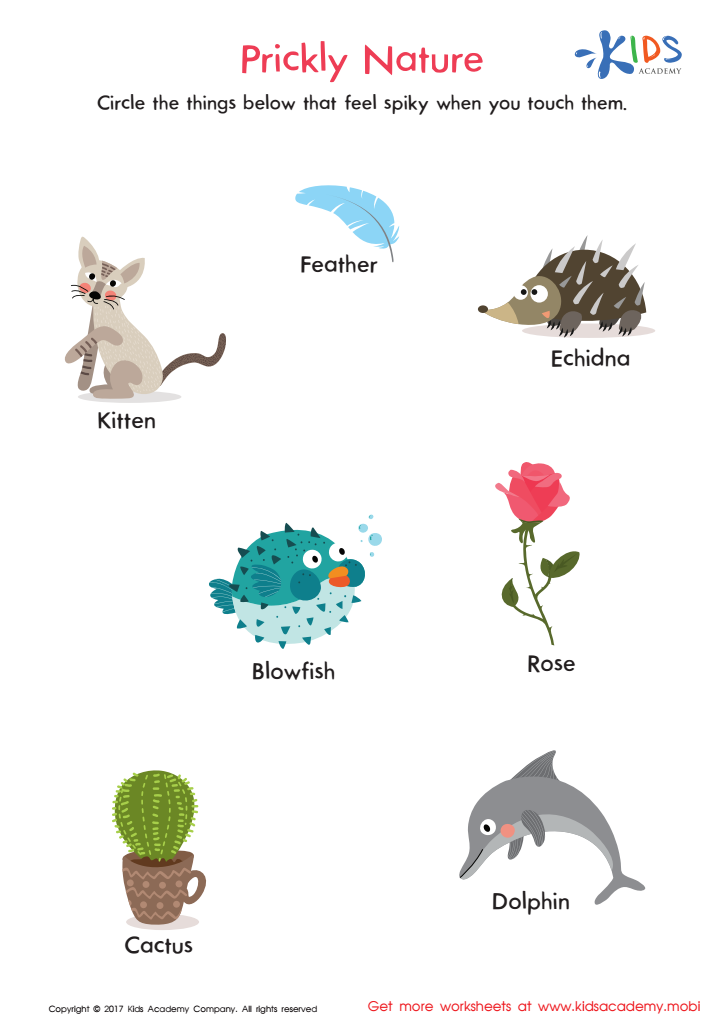

Prickly Nature Worksheet
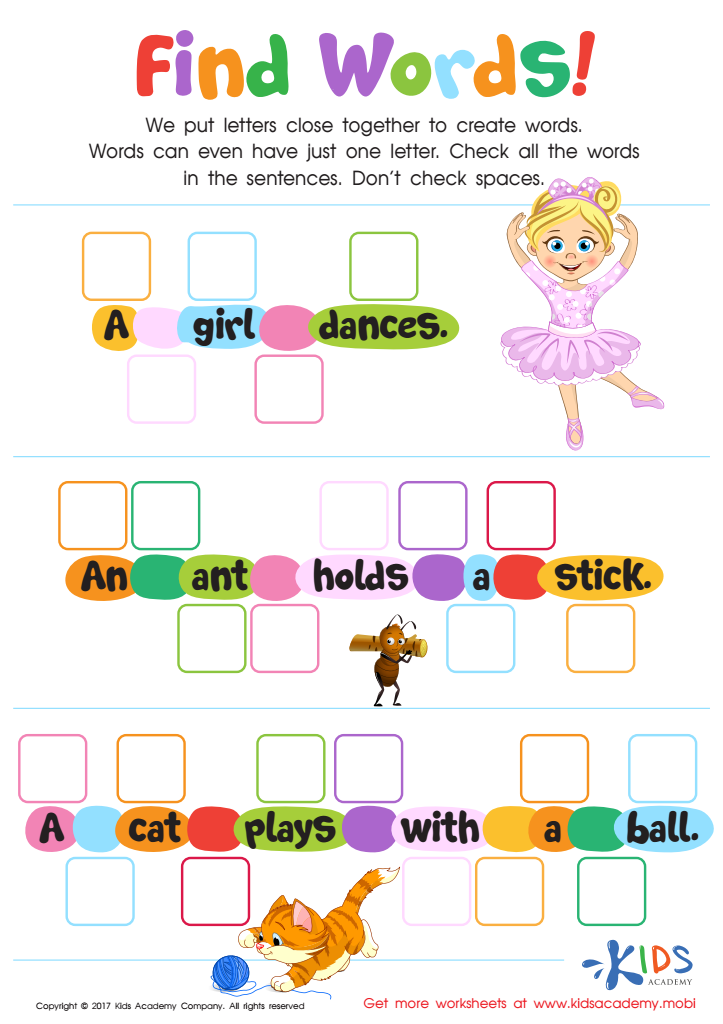

Find Words Worksheet
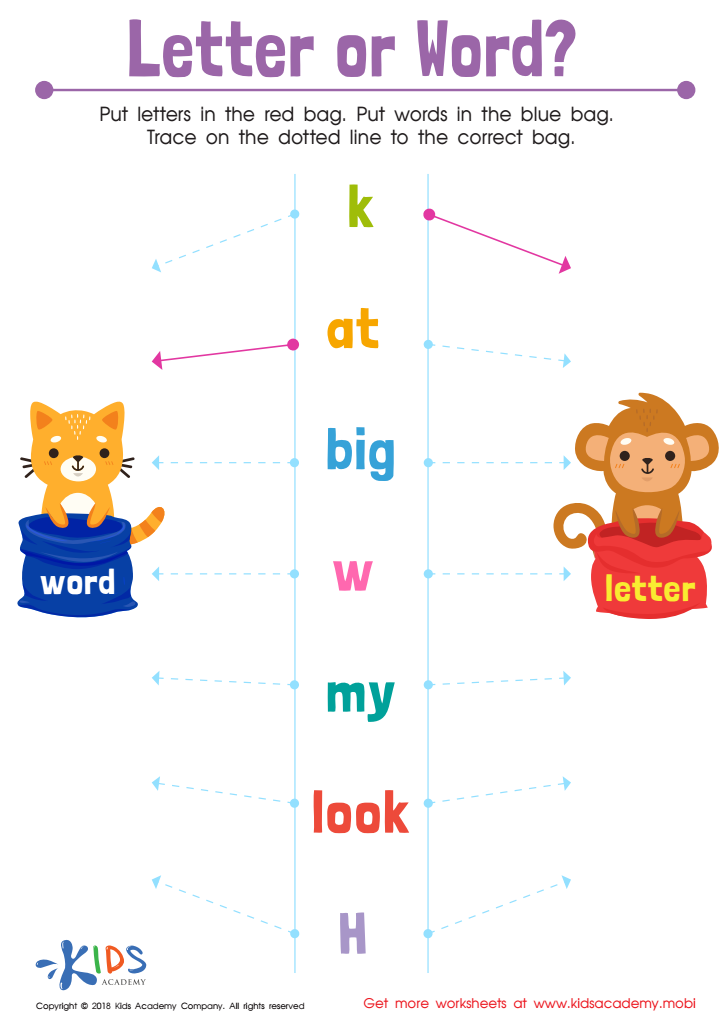

Letter or Word? Worksheet
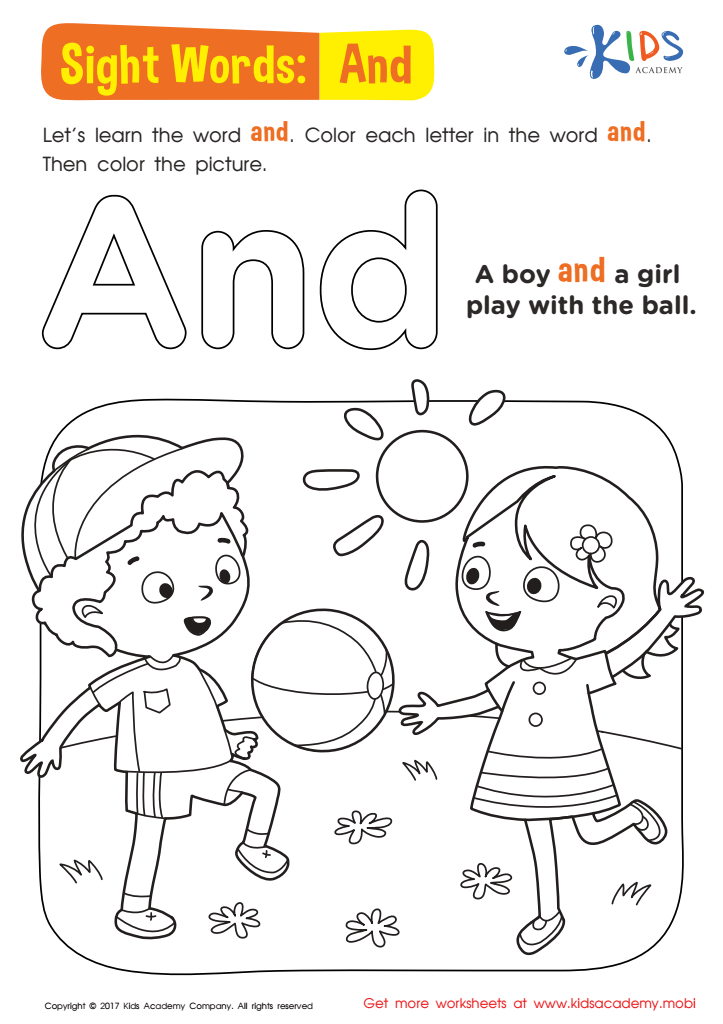

And Worksheet Sight Words Worksheet
Parents and teachers should prioritize vocabulary-building writing activities for 3-year-olds because early language development is foundational to overall cognitive growth and later academic success. At this critical age, children's brains are highly receptive to new information, and expanding their vocabulary can significantly enhance their communication skills. When children learn a variety of words, they can express themselves more clearly and understand others better, which boosts their social-emotional development.
Using vocabulary-building writing activities, even though 3-year-olds are just beginning to scribble and form letters, nurtures their pre-literacy skills. It encourages fine motor development and reinforces the connection between spoken language and written symbols. Engaging children with simple and fun word games, picture books, and guided writing tasks sparks their interest in words and reading. This foundation prepares them more seamlessly for formal reading and writing instruction later on.
Moreover, a richer vocabulary enhances children's ability to think and reason, laying the groundwork for problem-solving and critical thinking. Early exposure to diverse vocabulary also increases their ability to comprehend stories and instructions, which is essential as they begin their educational journey. Therefore, focusing on vocabulary-building writing sets the stage for lifelong learning and confident self-expression.

 Assign to My Students
Assign to My Students




















